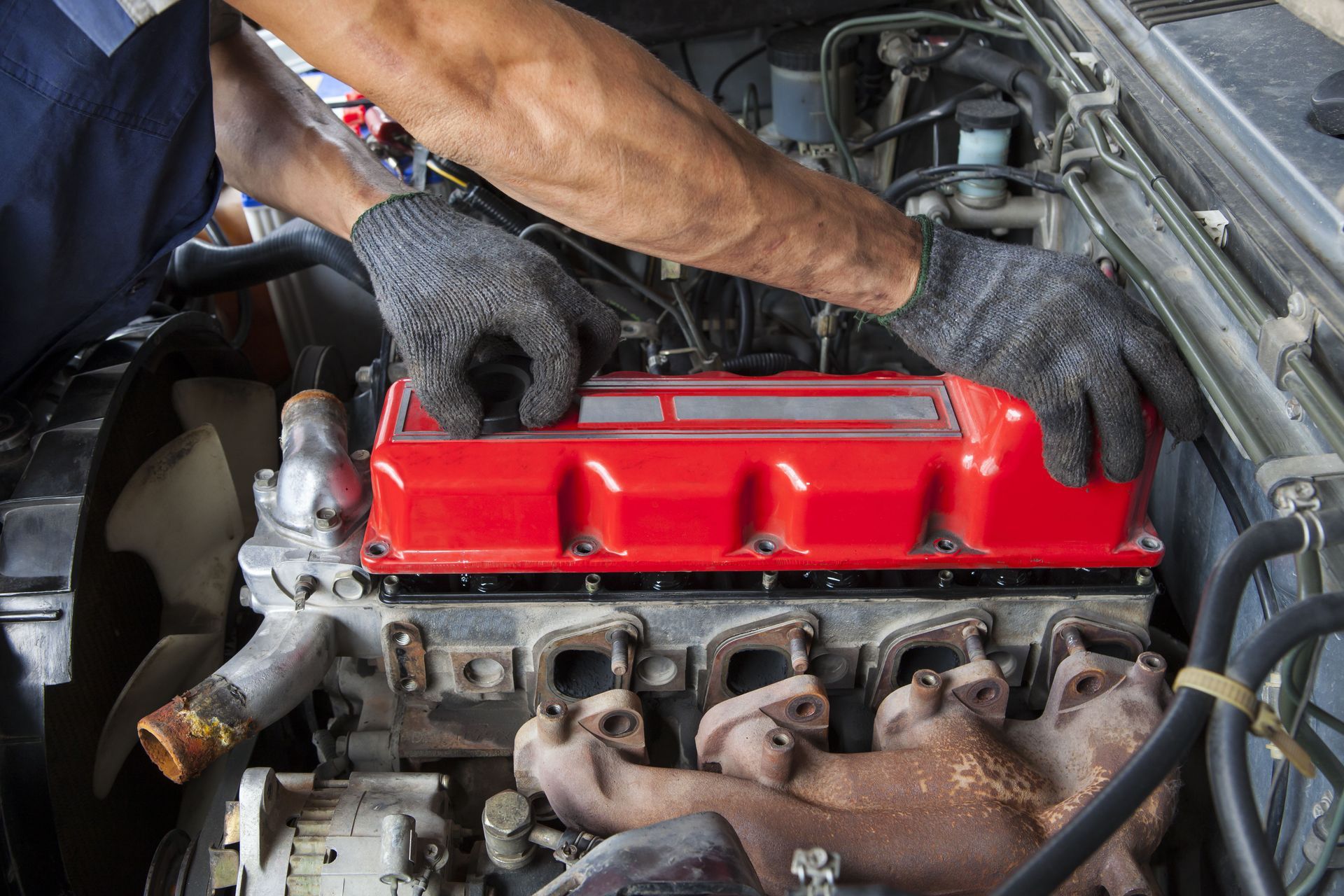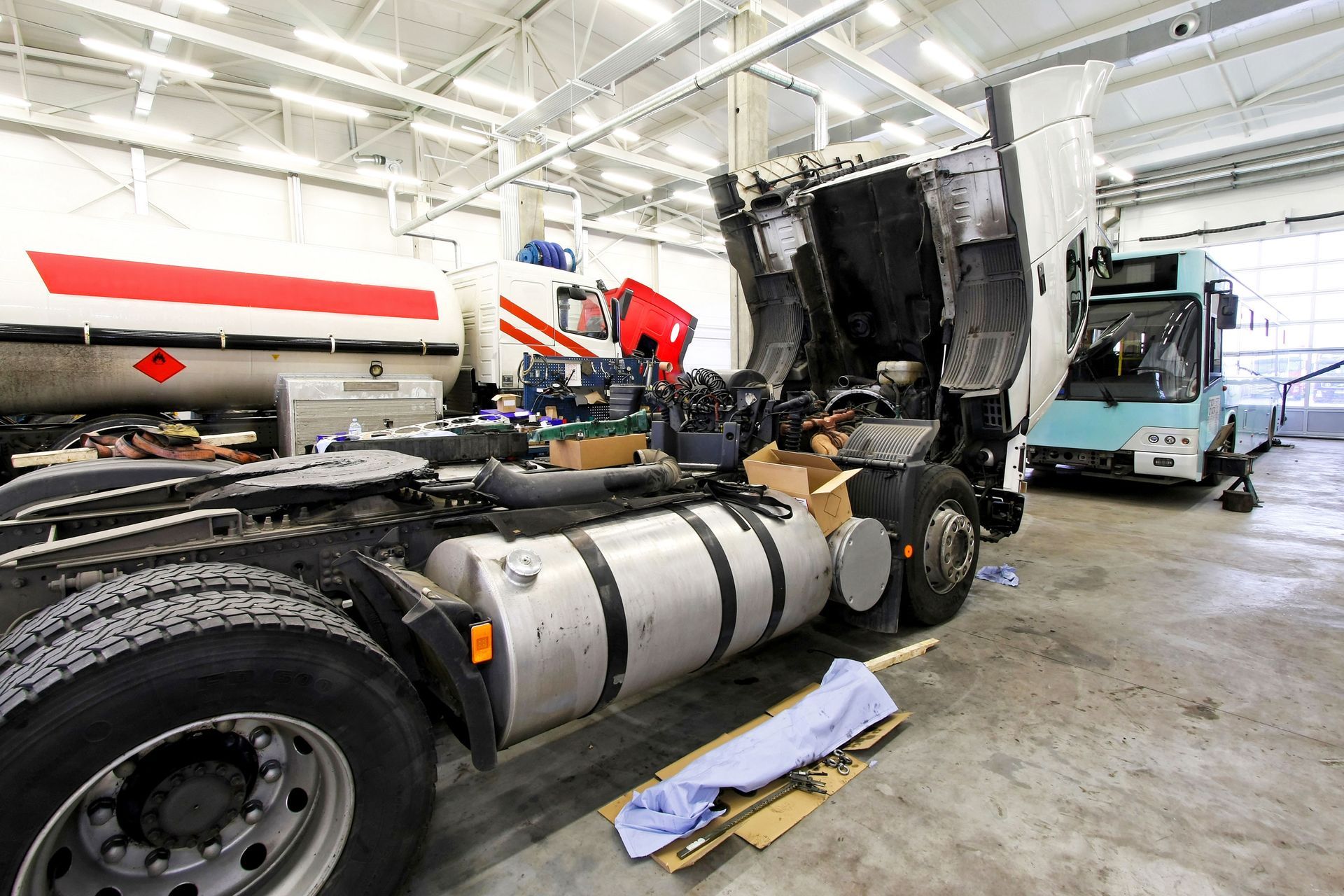October 20, 2025
Ensuring that trucks are in peak operating condition is crucial for safety, efficiency, and cost-effectiveness. Understanding the right schedule for truck repairs can make a significant difference in fleet management. This article explores the various factors influencing truck repair schedules. With proper planning and awareness, fleet operators can prevent unexpected breakdowns, reduce expenses, and maintain operational continuity.
Schedule Truck Repairs Effectively
Examine Manufacturer Maintenance Guidelines
Every truck manufacturer provides specific maintenance and repair guidelines that should be followed carefully. These recommendations are based on extensive testing and trials, ensuring optimal performance and longevity of the vehicle. By adhering to these guidelines, truck owners can anticipate maintenance needs and avoid premature aging of the vehicle. Ignoring these guidelines often results in more significant issues that could have been prevented.
Identify Standard Repair Intervals
Common repair intervals serve as a baseline for planning regular maintenance activities. These intervals generally prioritize critical components like brakes, tires, and engine oil, ensuring they are in top condition. Scheduled maintenance not only lengthens the vehicle's lifespan but also enhances safety and performance. By sticking to these intervals, truck owners can feel confident in their vehicle’s reliability.
Implement Preventive Maintenance Strategies
Conduct Regular Maintenance Checks
Regular maintenance checks offer numerous benefits beyond mere cost savings. They ensure trucks operate at peak performance levels by keeping critical components in optimal condition. Regular inspections also enhance fuel efficiency, lowering operational costs over time. Furthermore, a well-maintained truck fleet reflects positively on a company's reputation, signifying professionalism and care for safety.
Develop a Comprehensive Maintenance Schedule
Developing a structured maintenance schedule is crucial for effective preventive maintenance. This schedule should comprehensively cover all critical aspects of truck repairs, from engine checks to tire inspections. Aligning this schedule with manufacturer guidelines and including regular intervals ensures thorough coverage of necessary checks. The use of tracking tools can aid in the timely execution of scheduled maintenance tasks, minimizing human errors and oversight.
Allocate a Budget for Preventive Measures
Allocating a budget for preventive measures can seem challenging, but it is essential for cost-effective truck repairs. Accurate forecasting and financial planning help in setting aside funds for regular checks and minor repairs. Such financial preparedness prevents overspending and avoids financial strain during major repairs.
Address Wear and Tear Proactively
Identify High-Wear Components
Key components of trucks, like brakes, tires, and suspension systems, often experience significant wear and tear. Recognizing these high-wear parts enables more focused maintenance efforts. Regular checks of these components ensure that they are replaced or serviced before causing issues on the road.
Detect Symptoms of Wear and Tear
Early detection of wear and tear symptoms is essential for timely intervention and repair. Common indicators include unusual noises, difficult handling, or reduced fuel efficiency. Regular driver feedback and repair shop evaluations can help identify these symptoms promptly. Addressing these signs can prevent minor issues from developing into costly repairs.
Apply Repair Strategies to Minimize Wear
Implementing strategic repair plans can significantly minimize the impact of wear and tear. Routine inspections, lubrication, and replacements prevent high-wear components from reaching critical failure points. Customizing strategies based on vehicle usage and environmental considerations also enhances their effectiveness. Regular communication with repair professionals helps in staying updated on the latest techniques for minimizing wear and tear.
Recognize Signs of Immediate Repairs
Monitor Warning Lights and Error Codes
Modern trucks are equipped with sophisticated onboard diagnostics that alert drivers to mechanical issues through warning lights and error codes. Ignoring these signs can exacerbate minor issues, leading to serious failures. Quick response to warning lights can prevent safety hazards and costly repairs. Understanding these indicators and their corresponding actions is vital for maintaining proper repairs.
Detect Unusual Noises and Vibrations
Unusual noises and vibrations often indicate underlying mechanical problems that require immediate attention. These symptoms could stem from issues with the engine, suspension, or transmission systems. Drivers should report these signs promptly for inspection. Early diagnosis and repair of the root cause can prevent further damage and ensure vehicle safety. Proper attention to these symptoms maintains fleet reliability.
Check Fluid Levels and Leaks
Fluid leaks and irregular levels are common indicators of malfunctioning components, necessitating repair. Frequent checks of engine oil, coolant, transmission fluid, and brake fluid levels are crucial for identifying leaks. Timely intervention can prevent mechanical failures caused by inadequate lubrication or cooling. Proper fluid maintenance is a fundamental aspect of ensuring vehicle health and longevity, supporting efficient truck repairs.
Inspect Brake and Tire Conditions
Brake and tire issues are critical safety concerns that demand immediate attention and repair. Worn-out brake pads or irregular tire treads significantly increase the risk of accidents. Routine checks and timely replacements are essential to maintain a safe and efficient fleet. Addressing these issues promptly ensures compliance with safety regulations and boosts driver confidence while maintaining consistent repairs.
Select the Right Repair Shop
Evaluate Shop Reputation and Services
Selecting the right repair shop plays a crucial role in ensuring quality truck repairs. Important factors include reputation, available services, cost-effectiveness, and proximity to operations. Reviews and recommendations from industry peers can guide decision-making. Understanding the range of services offered helps in aligning shop capabilities with fleet requirements. Choosing an experienced repair shop ensures high-quality workmanship, prolonging truck lifespan and performance.
Assess Mechanic Expertise and Qualifications
Mechanic expertise is vital in ensuring accurate diagnostics and effective repairs. Credentials, training, and experience are key indicators of proficiency, impacting the quality of service rendered. Repair shops that invest in ongoing training for their mechanics generally deliver superior results. Engaging with skilled mechanics helps in keeping up with technological advancements in repairs. Expert mechanics can also offer valuable insights and recommendations for optimal truck performance and maintenance.
Review Warranties and Service Guarantees
Warranties and guarantees offer added assurance of service quality and reliability from repair shops. These terms protect clients from financial losses if repairs fail or issues persist shortly after service. They reflect the confidence a shop has in its work, often indicating high service standards. Clients should seek shops that offer reasonable warranties and guarantees as they symbolize accountability and quality assurance. Incorporating such agreements into service contracts ensures enhanced peace of mind and satisfaction.
Locate Specialized Repair Services
Some trucks may require specialized services that not all repair shops can provide. Finding shops that offer specialized services for specific models or parts is vital for accurate and efficient repairs. Specialization implies that mechanics have targeted expertise and access to genuine parts. These shops can deliver superior services that maintain the truck's performance and integrity. Locating and partnering with specialized repair shops ensures a high standard of service, promoting fleet reliability.
Plan for Emergency Truck Repairs
Establish a Clear Emergency Protocol
Preparing for emergencies is essential for minimizing disruptions and preventing extensive damage. An emergency protocol specifying procedures for common issues ensures swift action and resolution. The protocol should include contact lists and repair shops, providing comprehensive support during emergencies. Effective emergency planning underscores a company’s commitment to safety and operational continuity. By establishing a clear protocol, businesses can handle crises efficiently and recover swiftly.
Budget for Unexpected Repairs
Allocating a budget for emergencies ensures financial preparedness and swift resolution of unforeseen situations. Planning for emergency expenses prevents financial strain, facilitating quick repairs and reducing downtimes. According to IBISWorld, there are 46,742 businesses in the Truck Repair industry in the United States, so there is no shortage of options to consider when planning. Maintaining an emergency budget ensures fleet operations continue without costly delays.
Properly scheduling truck repairs is key to keeping your fleet safe, reliable, and operating efficiently. By creating a proactive maintenance plan tailored to your trucks, you can minimize downtime, extend vehicle life, and manage costs more effectively. For comprehensive commercial truck services and expert guidance, learn more about how BTR Trucks & Service can support our fleet.






